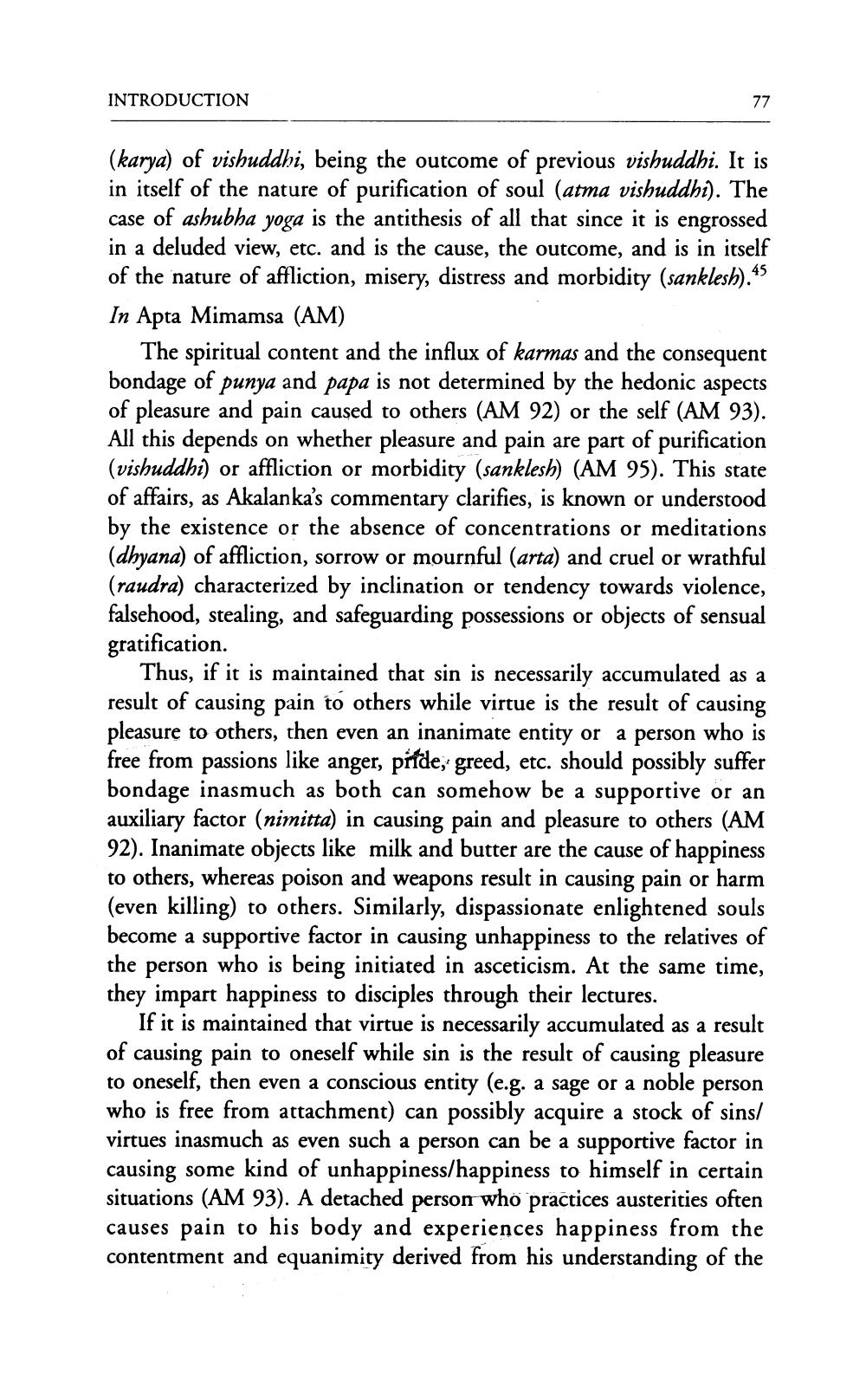________________
INTRODUCTION
(karya) of vishuddhi, being the outcome of previous vishuddhi. It is in itself of the nature of purification of soul (atma vishuddhi). The case of ashubha yoga is the antithesis of all that since it is engrossed in a deluded view, etc. and is the cause, the outcome, and is in itself of the nature of affliction, misery, distress and morbidity (sanklesh). 45 In Apta Mimamsa (AM)
The spiritual content and the influx of karmas and the consequent bondage of punya and papa is not determined by the hedonic aspects of pleasure and pain caused to others (AM 92) or the self (AM 93). All this depends on whether pleasure and pain are part of purification (vishuddhi) or affliction or morbidity (sanklesh) (AM 95). This state of affairs, as Akalanka's commentary clarifies, is known or understood by the existence or the absence of concentrations or meditations (dhyana) of affliction, sorrow or mournful (arta) and cruel or wrathful (raudra) characterized by inclination or tendency towards violence, falsehood, stealing, and safeguarding possessions or objects of sensual gratification.
Thus, if it is maintained that sin is necessarily accumulated as a result of causing pain to others while virtue is the result of causing pleasure to others, then even an inanimate entity or a person who is free from passions like anger, pifde, greed, etc. should possibly suffer bondage inasmuch as both can somehow be a supportive or an auxiliary factor (nimitta) in causing pain and pleasure to others (AM 92). Inanimate objects like milk and butter are the cause of happiness to others, whereas poison and weapons result in causing pain or harm (even killing) to others. Similarly, dispassionate enlightened souls become a supportive factor in causing unhappiness to the relatives of the person who is being initiated in asceticism. At the same time, they impart happiness to disciples through their lectures.
If it is maintained that virtue is necessarily accumulated as a result of causing pain to oneself while sin is the result of causing pleasure to oneself, then even a conscious entity (e.g. a sage or a noble person who is free from attachment) can possibly acquire a stock of sins/ virtues inasmuch as even such a person can be a supportive factor in causing some kind of unhappiness/happiness to himself in certain situations (AM 93). A detached person who practices austerities often causes pain to his body and experiences happiness from the contentment and equanimity derived from his understanding of the




